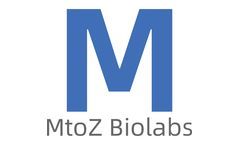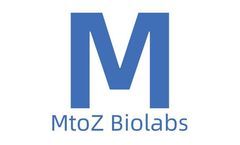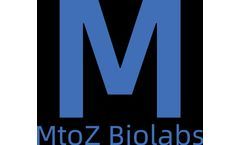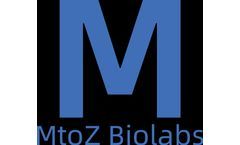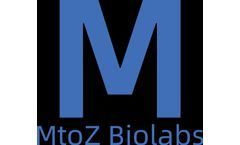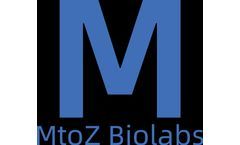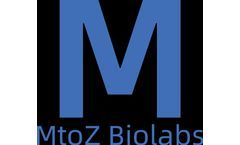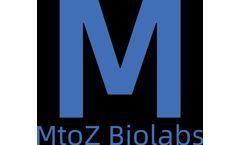Refine by
Biopharmaceutical Articles & Analysis: Older
95 articles found
In addition, MtoZ Biolabs also provides a variety of biopharmaceutical characterization services such as activity detection, structure characterization, charge heterogeneity characterization, and impurity analysis. ...
For example, amino acids and proteins are important raw materials for cell growth and antibody production, while sugar provides the energy needed by cells.The analysis of medium components is a key aspect of the biopharmaceutical process because it directly affects the health and productivity of cells and the quality of the final product. ...
Creative Bioarray has extensive experience in characterizing cGMP cell banks for biopharmaceutical production, offering a broad range of cell line characterization services that allow researchers to efficiently streamline cGMP-compliant manufacturing and accelerate successful commercialization. ...
Furthermore, MtoZ Biolabs also offers a variety of biopharmaceutical characterization services, such as circular dichroism, X-ray, and nuclear magnetic resonance analysis, please feel free to inquire in detail.Endogenous Fluorescence Detection of Recombinant Protein ...
In addition, MtoZ Biolabs also provides a variety of biopharmaceutical characterization services such as circular dichroism, nuclear magnetic resonance analysis, and we welcome your consultation.Endogenous Fluorescence Detection of Recombinant Protein ...
HCP (Host Cell Proteins) residual detection is a key quality control step in the field of biopharmaceuticals, aiming at ensuring that the proteins of the host cells used for producing therapeutic proteins in any cell-based production system are maintained at acceptable low levels in the final drug product.ImportanceHCPs are impurities during the production process, which may ...
Host cell protein (HCP) residual detection refers to the testing of proteins that may remain in the final product and originate from the production cell line (i.e., the "host") during the biopharmaceutical production process. This testing is crucial because these host cell proteins (HCPs) may impact the safety, efficacy, and quality of drug products.In the fields of biotechnology ...
Host protein residue detection is an important quality control step in the biopharmaceutical process. In biopharmaceuticals, cell lines (hosts) are typically used to produce proteins or other biological products. ...
For instance, when producing biopharmaceuticals like monoclonal antibodies, clonality analysis ensures that the production cell line is purely derived from a single, well-characterized clone, thus enhancing product safety and efficacy. ...
In addition, we can provide customized pharmacokinetics services for biopharmaceutical products. ...
Prolonging Drug Half-Life The process of PEGylation, which involves attaching PEG chains to therapeutic molecules, has been a game-changer in prolonging the half-life of drugs. Many biopharmaceuticals, such as peptides and proteins, are prone to rapid degradation and clearance from the systemic circulation. ...
Biopharmaceuticals and personalized medicine are hot fields in the development of the pharmaceutical industry today. Proteins, peptides, and antibodies are important molecules in the body and are important objects of research in biopharmaceuticals and personalized medicine. With the continuous advancement of protein, peptide, and antibody sequencing technology, ...
Data AnalysisThe obtained data is analyzed to understand how glycans influence the function of the antibody drug.Glycosylation analysis is crucial for ensuring the quality and efficacy of antibody drugs, particularly in the field of biopharmaceuticals. This process helps in determining the degree of glycosylation of the drug, which is very important for its pharmacological ...
With the rapid development and maturity of peptide synthesis technology, peptide drugs have become the focus of biopharmaceutical research and development in recent years. Currently, peptide drugs are widely used in the diagnosis and treatment of tumors, autoimmune diseases, and certain cardiovascular diseases and diabetes, with broad application prospects.Analytical ...
Combined with the rapid development and maturity of peptide synthesis technology, peptide drugs have become the focus of biopharmaceutical research in recent years. Currently, peptide drugs are widely used in the diagnosis and treatment of tumors, autoimmune diseases, certain cardiovascular diseases, diabetes, etc., with broad application prospects. ...
Oncology drug development makes up almost half of the annual R&D expenditure of biopharmaceutical companies. Only 10% of drugs advanced to the clinical stage are successfully brought to market, with half of all failures attributed to lack of clinical efficacy. ...
Watertown, MA, July 22, 2024 – Biopharma PEG, a top supplier of PEG derivatives, is excited to introduce its new line of monodispersed PEGs. These specially sized polymers are designed to improve the stability and delivery of proteins and peptides in drugs. They are essential for Antibody-Drug Conjugate (ADC) linkers, Proteolysis Targeting Chimeras (PROTAC) linkers, and PEGylated proteins ...
A large portion of recombinant biopharmaceutical proteins is involved in utilizing CHO-based cell expression system such as rituximab, epoetin alfa, alteplase etc. ...
Genomic engineering in cell lines is a versatile tool for studying gene function, designing diseases models, biopharmaceutical research, drug discovery and many other applications. CRISPR (Clustered Regulatory Interspaced Short Palindromic Repeats)/Cas9 systems is a newly developed yet the most popular method for genome editing. ...
The quest for transformative cell and gene therapies has ignited a wave of innovation in biopharmaceuticals. As the industry races to unlock these treatments’ full potential, the intricacies of therapy development present unprecedented challenges. ...


